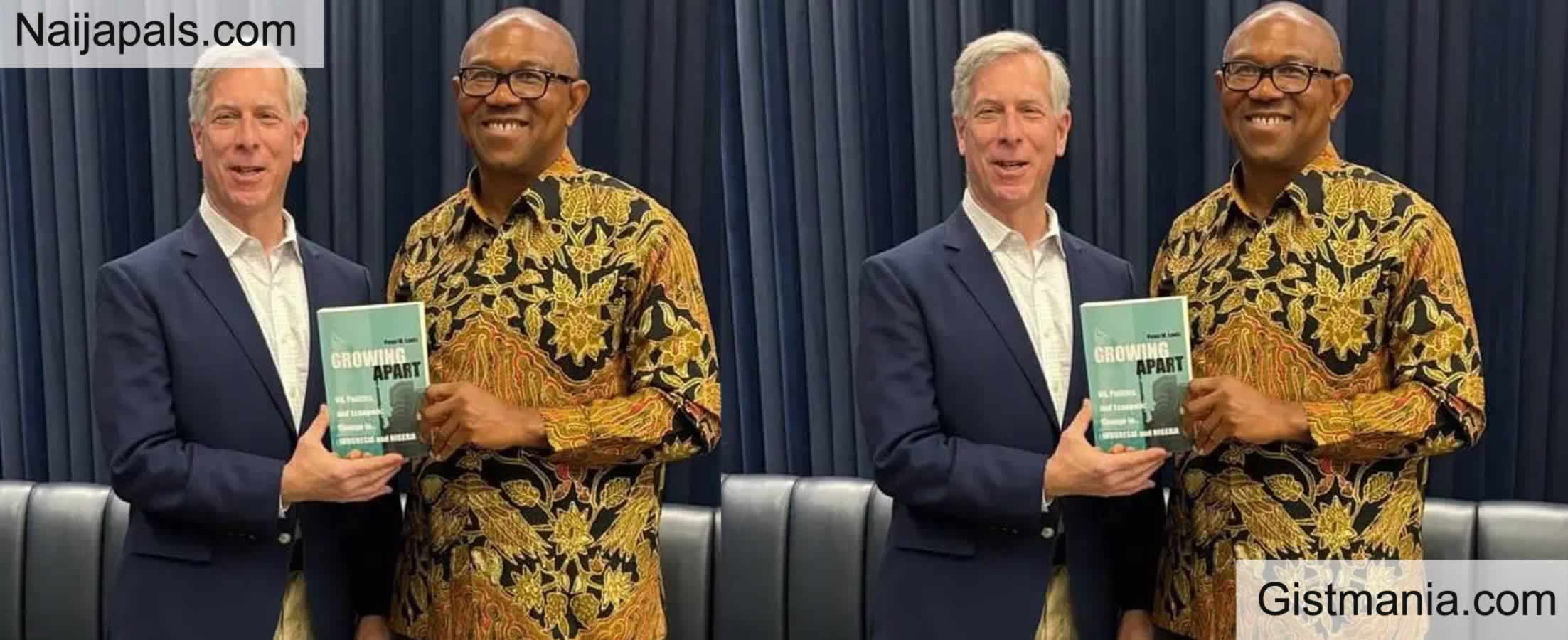
Former Labour Party presidential candidate, Peter Obi, has attributed Nigeria’s deepening poverty and stalled development to decades of poor political leadership.
Speaking at Johns Hopkins University in the United States on Thursday, Obi warned that Nigeria now has more people living in poverty than China, Indonesia, and Vietnam combined.
Delivering a lecture titled “Politics and Change in Nigeria,” Obi drew stark comparisons between Nigeria and other emerging economies over the past 35 years, noting that while countries like China, Indonesia, and Vietnam have advanced significantly, Nigeria has regressed.
“In 1990, the year the measurement of the Human Development Index (HDI) was started, these 3 comparable nations, including Nigeria, were all classified under the medium category… 35 years later, 3 of these nations have moved up to the High category of HDI while Nigeria has fallen into the low category,” Obi said.
Sharing key points from the lecture via his verified X account on Friday, Obi stressed that leadership remains the decisive factor in a nation’s development.
“The failure of a nation depends largely on its Political Leadership. Competent, capable and compassionate political leadership, with integrity, will help nations to achieve sustainable growth and development,” he said.
Obi also underscored how Nigeria has fallen behind economically. Comparing GDP per capita figures from 1990 and today, Obi noted that while Nigeria once outpaced China and Vietnam, it now lags significantly behind.
“As of 1990, while Nigeria had a GDP per capita of $556, China had $317, Indonesia had $578, and Vietnam had only $99… Today, Nigeria’s per capita is about one-fifth of Indonesia’s ($5000) and Vietnam’s ($4400) GDP per capita and below one-tenth of China’s ($13,000),” he stated.
Raising concern about Nigeria’s alarming poverty figures, he said: “In 1990… China had about 750 million people living in poverty… Today, however, Nigeria has more poor people than these 3 countries combined.”
The erstwhile Anambra governor credited the progress in those countries to consistent investment in human capital and infrastructure, guided by visionary leadership.
| Posted: at | |





 TRENDING GISTS
TRENDING GISTS  Leo XIV Celebrates First Mass After Historic Election As Pope
Leo XIV Celebrates First Mass After Historic Election As Pope He Laughed At Me When I Had Issues With The Authorities -Bobrisky React To VeryDarkMan’s Arrest
He Laughed At Me When I Had Issues With The Authorities -Bobrisky React To VeryDarkMan’s Arrest PHOTOS: Troops Arrest Notorious Gunrunners, Recover Arms In Kaduna
PHOTOS: Troops Arrest Notorious Gunrunners, Recover Arms In Kaduna PHOTOS: Young Woman Brutally Murdered By Suspected Ritualists, Priv@te Part Removed In Ogun
PHOTOS: Young Woman Brutally Murdered By Suspected Ritualists, Priv@te Part Removed In Ogun Woman Slams Her Husband For Allegedly Having Unprotected S3x With Random Girls After Publicly Apologizing To Her
Woman Slams Her Husband For Allegedly Having Unprotected S3x With Random Girls After Publicly Apologizing To Her Actress, Laide Bakare Crowned UN Ambassador Of Peace
Actress, Laide Bakare Crowned UN Ambassador Of Peace VIDEO: President Tinubu Conferred With a Chieftaincy Title in Anambra State
VIDEO: President Tinubu Conferred With a Chieftaincy Title in Anambra State